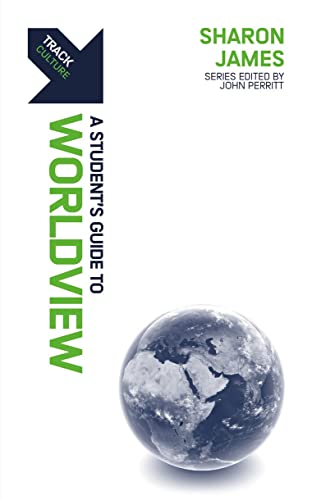A Book Review from Books At a Glance
by Ben Rogers
In recent months Sharon James has released two new and timely books on the Christian worldview with Christian Focus Publication that approach this critically important subject in new and engaging ways. Typically, the Christian worldview is presented as either a narrative (creation, fall, redemption, consummation) or as the answer to the fundamental questions of life (origins, identity, ethics, and purpose), and there are plenty of excellent options available that do just this. James takes a slightly different approach in both works.
In The Lies We Are Told, the Truths We Must Hold James shines a spotlight on some of the dominant cultural lies – all rooted in naturalism – we have embraced and discusses their historical and philosophical origins, as well as their disastrous consequences for individuals and society. They are:
- No God
- No Absolute Morality
- No Universal Truth
- No Universal Humanity
These lies should be familiar to most readers, and so will some Christian responses, but James’ treatment is worth considering for at least two reasons. First, her work on the historical pedigree of these lies is outstanding. For example, when James discusses the denial of universal truth, she traces the death of reason (and common sense) from Rousseau to Derrida and the Enlightenment to postmodernity, making strategic stops in various countries and critical moments along the way. In short, she succeeds in presenting a simple yet sweeping historical account the lies under consideration. And her treatment is replete with quotes from original sources, which allows readers to hear their opponent in their own words and heads off the charge of misrepresentation at the pass.
Second, James’ work is remarkably up to date. I have been teaching worldview courses at church and school since 2016, and with each passing year I am shocked by how quickly the cultural landscape changes. And as a result, many good, solid worldview books that were written a decade ago (or more) simply do not speak to many of the most pressing cultural issues believers face today, like critical race theory, queer theory, and cultural Marxism. James’ work, however, does. Moreover, James is to be commended for showing how the church has been complicit in promoting these lies by compromising on sexual ethics; undermining Biblical authority; and accommodating itself to liberal theology, the therapeutic culture, and the social justice movement.
The second half of the work presents the antidote to these lies. James argues, and rightly so, that the biblical worldview alone provides a sufficient foundation for truth, freedom, dignity, and human flourishing. Honestly, I expected a more traditional Christian worldview presentation (i.e. creation, fall, redemption, consummation), but all of those elements are present, and since the purpose of this part of the work is to offer a Christian response to specific lies, I’m not sure that sort of approach is necessary in the first place.
In the end, the Lies We Are Told, the Truth We Must Hold is an excellent, timely, needed, and eminently practical (there are summaries, charts, and suggestions for further readings) book for God’s people, who desire to be like the men of Issachar in 1 Chron. 12:32, “who had understanding of the times, to know what Israel ought to do.”
In A Student’s Guide to Worldview, James presents the same truths in a different way to a younger audience. I don’t mean to suggest The Lies We Are Told would be too heady for students. I think high schoolers and college students would benefit from it as much as their parents (and grandparents). But this work, as the title suggests, is geared specifically for students and is written for that audience. It is part of Christian Focus’ Tract series, which addresses a host of topics in the primary areas: doctrine, culture, and the Christian Life.
Rather than presenting the Christian worldview in terms of the biblical narrative (creation, fall, redemption, consummation) or the fundamental questions of life (origins, identity, authority, ethics, suffering, purpose), James seeks to show that “the Christian worldview explains why, as human beings, we are certainly not just animals or consumers.” It alone provides “certain hope for this life and eternity, hope not only for individuals, but for the whole cosmos (10).” And it alone offers a firm foundation for human dignity, real freedom, morality, and human flourishing (97-98).
Each chapter is relatively short (10 pages), which is short enough to be read in one sitting, even for slow readers. They focus on ten topics that students are concerned about:
- Dignity
- Joy
- Purpose
- Suffering and Injustice
- God’s Kindness to All
- God’s Saving Work
- Love
- Security
- Truth
- Fulfillment
This approach is both wise and winsome. As a pastor and a teacher, I can testify that students are deeply concerned about these issues. They are more than cultural hot buttons – they are existentially pressing. They want to know why humans are different than animals, or if there is meaning and purpose in the universe, or what the Bible says about the problem of evil and suffering.
Each chapter typically opens with an arresting story, question, or observation that draws the reader in. Then, there is a brief biblical exposition of the theme of the chapter, which is written in a clear, simple, engaging, and accessible style. Students will not miss the point. The chapters close with a short summary and a few thought-provoking reflection questions.
Students can profitably read this book on their own, with a parent or mentor in a one-to-one setting, or in a small group or youth group setting. Though students are the primary audience, Christian parents and youth workers would also benefit from it. James’ concise treatment of these critical worldview topics makes A Student’s Guide to Worldview a valuable resource and a welcome addition to Christian Focus’ Tract series.
Ben Rogers

